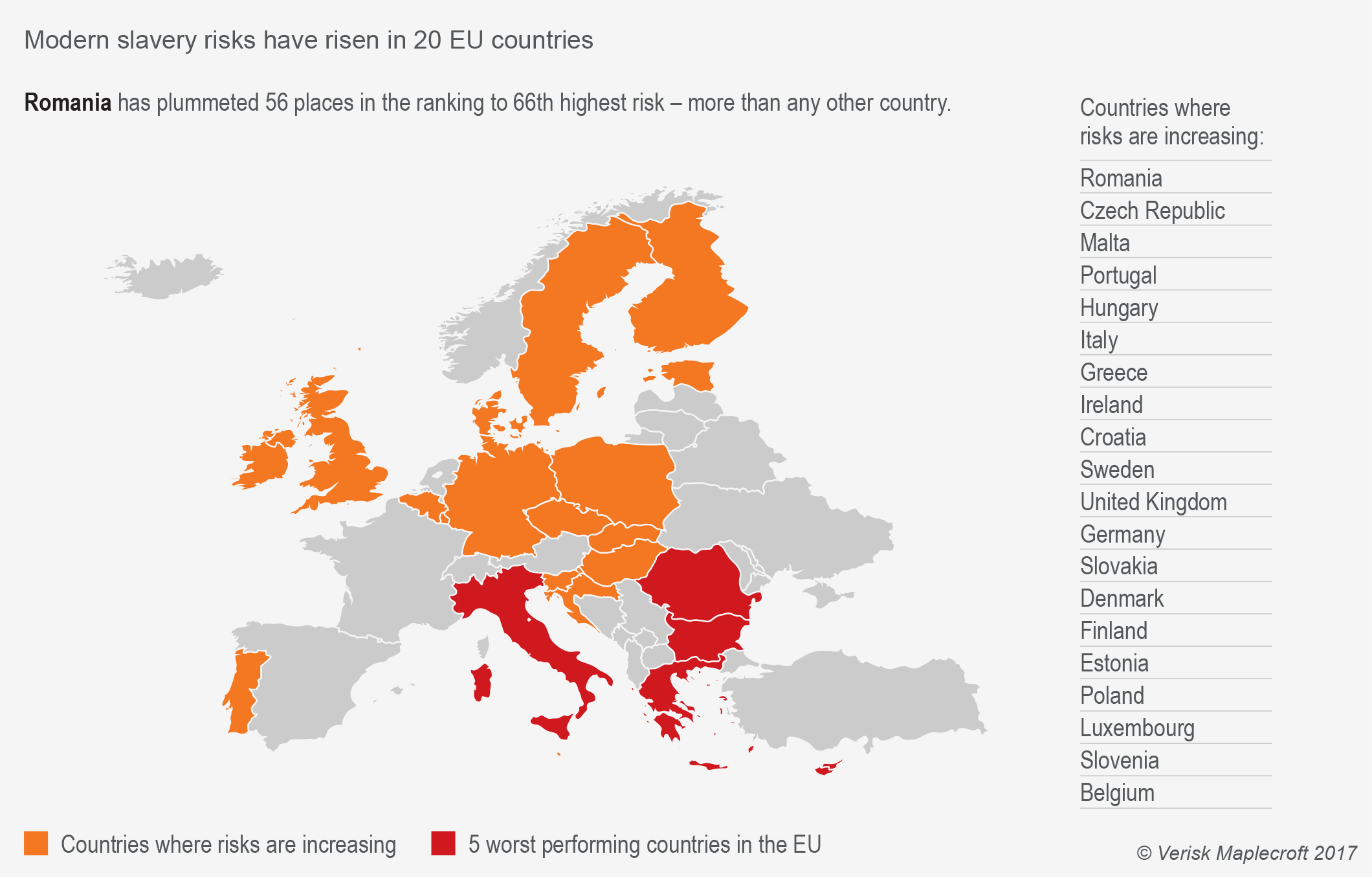Creating an ethical and transparent supply chain is no easy task; especially without full visibility of the supply chain below the first tier.
Last week’s blog covered the rise of modern slavery in the UK with the previous predicted number of slaves nationwide (10,000 – 13,000) being only the “tip of the iceberg”. However, the risk of slavery hasn’t only risen in the UK but worldwide, affecting businesses who outsource their manufacturing. With the risk of human rights abuses and slavery in the supply chain rising, there couldn’t be a more important time to create an ethical and transparent supply chain.
In the past, human rights abuses in the supply chain posed a major reputational risk (think Nike in the 1990s) but with the introduction of modern slavery legislation in recent years, companies are also facing a very real legal risk too.
Companies with both global and local supply chains could be at risk. The largest increase in slavery in any world region in 2017 has been recorded by the European Union. Romania, Greece, Italy, Cyprus and Bulgaria were ranked as the 5 countries posing the high risks of modern slavery according to the Modern Slavery Index 2017. 60% of countries ranked in the “high” or “extreme risk” categories, with top Asian sourcing countries remaining high on the list. India remained ranked as an “extreme risk” after jumping the highest up the index, with severe abuses reported in construction, manufacturing, farming and garment production as well as other sectors.
The UK itself has moved from “low risk” to “medium risk” alongside Germany with new data revealing “gaps in the U.K.’s labor inspectorate, while Germany has experienced an uptick in recorded trafficking and servitude violations".

Theresa May has vowed that Britain will lead the fight against the "barbaric evil" that is modern slavery using a new cabinet taskforce and £33m from the aid budget to fund overseas initiatives. Despite this, only retailers can ensure that their own suppliers are behaving in an ethical manner.
Senior human rights analyst at Verisk Maplecroft, Sam Haynes said, "The migrant crisis has increased the risk of slavery incidents appearing in company supply chains across Europe." A Behind the Barcode report of fashion brands in Australia found that only half of brands keep track of their first-tier suppliers – those responsible for cutting, making and trimming (CMT) garments to be sold in Western high streets. Without full visibility of those involved in the manufacturing process, companies cannot be sure what goes on in the supply chain, and whether human rights are being abused.
But ethical problems aren’t limited to overseas factories. In an interview with Drapers, New Look CEO Anders Kristiansen stated that the inability of UK factories to meet ethical regulations prevented the fashion brand from moving large volumes of production back to the UK. ASOS CEO Nick Beighton agreed that despite having “a lot of very competent UK manufacturers” the British garment industry needed more support to be ethical.
An Economist Intelligence Unit (EIU) survey of 800 executives in key industrial economies found:
- 22% of companies are addressing child labour concerns in the supply chain
- 23% are tackling climate change
- 28% are addressing gender inequality in the supply chain
- 32% are ensuring that they aren’t sourcing from areas of conflict and violence
- 60% are tackling workplace safety
- 55% are looking at reducing waste
- 50% are addressing working hour limits
“The first step is to admit you have a problem” states the EIU study. By admitting that they may have a supply chain compliance problem, companies can begin to tackle and identify slavery and non-compliance further down the supply chain. To do this, they must know what – and who – that supply chain consists of.
Segura offers brands and retailers the ability to track and trace their end-to-end supply chain using order management software, as well as one central location to store all factory information including audit data.
Only through full visibility of the entire supply chain will businesses be able to eliminate the risk of modern slavery and human rights abuses within their supply chains.


